
Djurgården: Stockholm's Green Oasis and Cultural Heart
Djurgården, an island in central Stockholm, is a captivating blend of lush greenery, rich history, and vibrant culture. Known as the city's green oasis, Djurgården offers visitors an escape from the urban hustle while still being conveniently close to the city center. The island is home to some of Stockholm's most popular attractions, making it a must-visit for any tourist. Begin your journey at the Vasa Museum, which houses the impressively preserved Vasa warship from the 17th century. A short walk away is the ABBA Museum, a tribute to Sweden's iconic pop group, and the Skansen Open-Air Museum, where you can explore traditional Swedish life and see native animals in a natural setting. For families, the Gröna Lund amusement park provides thrilling rides and entertainment. Djurgården is also perfect for leisurely strolls or bike rides along its scenic paths. Stop by Rosendals Trädgård, an idyllic garden café and organic farm, to enjoy fresh produce and baked goods. Art enthusiasts can visit the Thiel Gallery to view an extensive collection of Nordic art. As you explore, you'll find numerous spots to relax by the water, have a picnic, or simply soak in the serene atmosphere. Whether you're interested in history, culture, or nature, Djurgården offers a diverse and enriching experience that showcases the best of Stockholm.
Local tips in Djurgården
- Visit early in the day to avoid crowds, especially during the summer.
- Rent a bike to easily explore the island's extensive paths and gardens.
- Check the opening hours of museums and attractions as they can vary seasonally.
- Bring a picnic to enjoy by the water or in one of the many green spaces.
- Wear comfortable walking shoes as the island is best explored on foot.
Djurgården: Stockholm's Green Oasis and Cultural Heart
Djurgården, an island in central Stockholm, is a captivating blend of lush greenery, rich history, and vibrant culture. Known as the city's green oasis, Djurgården offers visitors an escape from the urban hustle while still being conveniently close to the city center. The island is home to some of Stockholm's most popular attractions, making it a must-visit for any tourist. Begin your journey at the Vasa Museum, which houses the impressively preserved Vasa warship from the 17th century. A short walk away is the ABBA Museum, a tribute to Sweden's iconic pop group, and the Skansen Open-Air Museum, where you can explore traditional Swedish life and see native animals in a natural setting. For families, the Gröna Lund amusement park provides thrilling rides and entertainment. Djurgården is also perfect for leisurely strolls or bike rides along its scenic paths. Stop by Rosendals Trädgård, an idyllic garden café and organic farm, to enjoy fresh produce and baked goods. Art enthusiasts can visit the Thiel Gallery to view an extensive collection of Nordic art. As you explore, you'll find numerous spots to relax by the water, have a picnic, or simply soak in the serene atmosphere. Whether you're interested in history, culture, or nature, Djurgården offers a diverse and enriching experience that showcases the best of Stockholm.
Iconic landmarks you can’t miss
Skansen
Discover the charm of Sweden's history and nature at Skansen, the world's first open-air museum with traditional architecture and native wildlife.
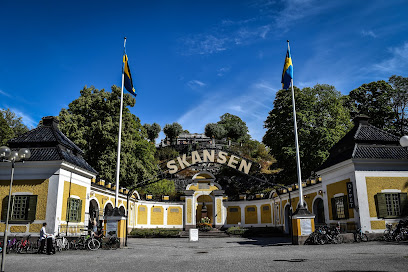
Prins Eugens Waldemarsudde
Discover the artistic legacy of Sweden at Prins Eugens Waldemarsudde, a serene art museum set in stunning natural surroundings.
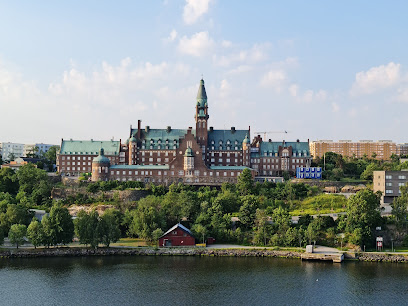
Royal Djurgården
Explore the lush landscapes and cultural gems of Royal Djurgården, Stockholm’s serene national park and a perfect escape for nature lovers and history enthusiasts.
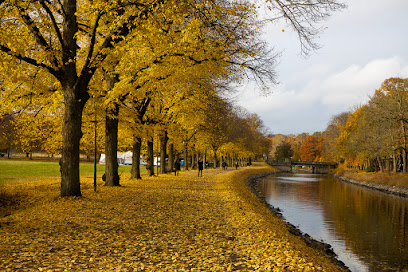
Lusthusportens park
Discover the serene beauty of Lusthusportens Park, a tranquil escape in the heart of Stockholm offering picturesque views and lush landscapes.
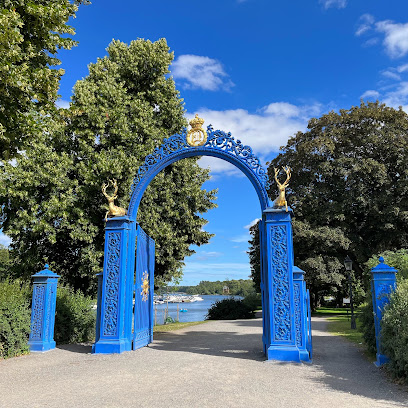
Ekotemplet / Lusthuset på Waldermarsudde
Discover the beauty and tranquility of Ekotemplet at Waldermarsudde, a unique blend of nature and architecture in Stockholm.
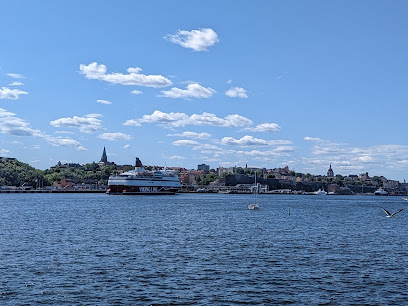
Astrid Lindgren Statue
Explore the Astrid Lindgren Statue in Stockholm, a magical tribute to the beloved author that brings her enchanting tales to life in a whimsical sculpture.
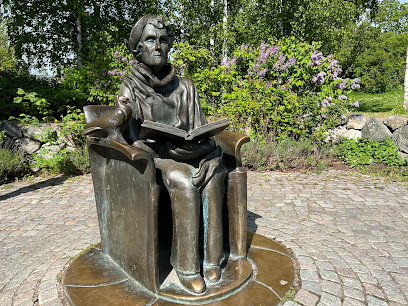
Life Rings
Explore Life Rings in Stockholm - a captivating sculpture that embodies the city's artistic spirit and invites visitors to discover its cultural charm.
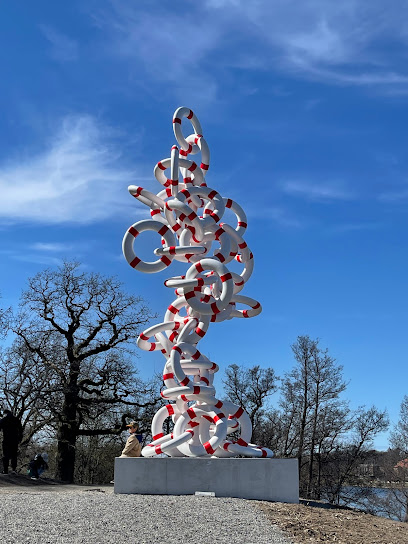
Jenny Lind Statue
Discover the Jenny Lind Statue in Stockholm, a stunning tribute to the Swedish Nightingale amidst serene park surroundings.
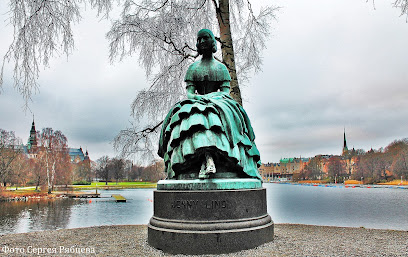
Evenemangsparken Södra Djurgården
Discover the beauty and tranquility of Evenemangsparken Södra Djurgården, a serene park in Stockholm perfect for relaxation and scenic views.
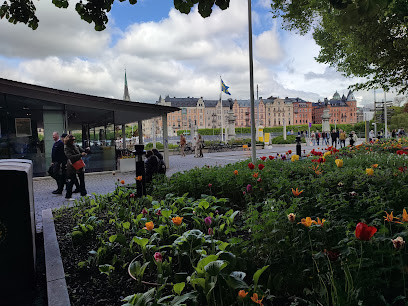
Statarlängan
Explore the captivating heritage of Sweden at Statarlängan, a charming museum in Stockholm showcasing the rich cultural history of the region.
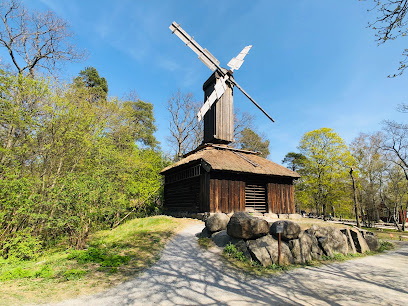
Unmissable attractions to see
Vasa Museum
Discover the Vasa Museum in Stockholm, home to the world’s only preserved 17th-century warship, offering a unique glimpse into Sweden's maritime history.
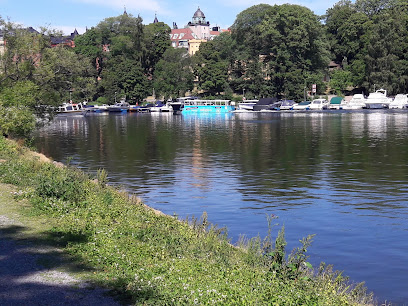
Nordiska museet
Discover the heart of Sweden’s cultural heritage at Nordiska Museet, a captivating museum showcasing centuries of Swedish history and art.
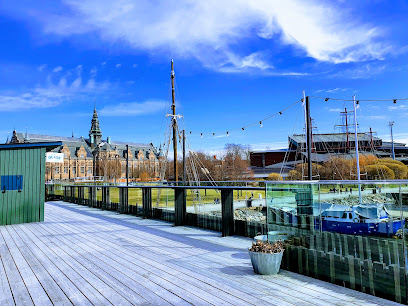
Junibacken
Explore Junibacken, a magical attraction in Stockholm, where children's stories come to life through interactive exhibits, performances, and enchanting experiences.

Museum of Spirits
Discover the rich heritage of Swedish spirits through engaging exhibits and delightful tastings at Stockholm's Museum of Spirits.
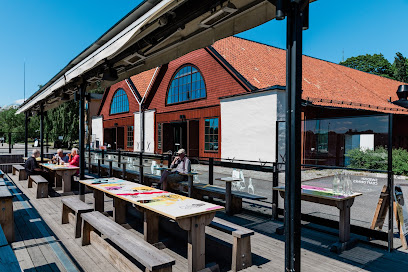
Royal Djurgården
Discover the natural beauty and cultural treasures of Royal Djurgården, a serene national park in the heart of Stockholm.
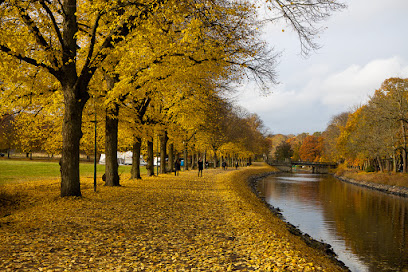
Lusthusportens park
Explore Lusthusportens Park, a serene green haven in the heart of Stockholm, perfect for relaxation, picnics, and scenic views.
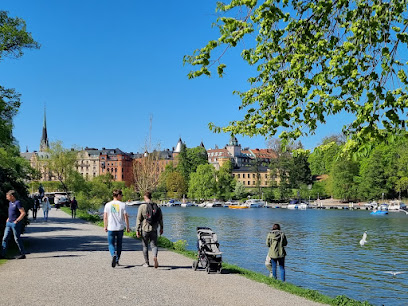
Skånska Gruvan
Explore the fascinating history of Sweden's mining industry at Skånska Gruvan, a unique museum and café in Stockholm's scenic Djurgården.
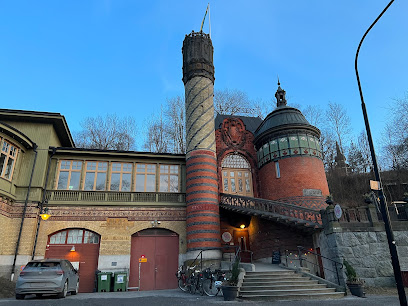
Älvros farmstead
Explore Älvros Farmstead at Skansen, where history and Swedish rural culture come alive in a picturesque setting.
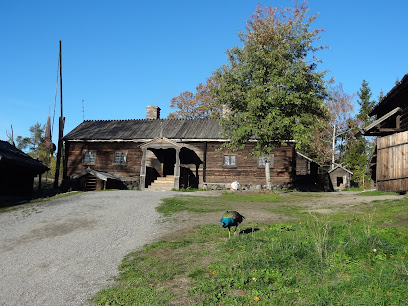
Essential places to dine
Wärdshuset Ulla Winbladh AB
Experience authentic Swedish cuisine at Wärdshuset Ulla Winbladh – a charming inn with a delightful beer garden in Stockholm.
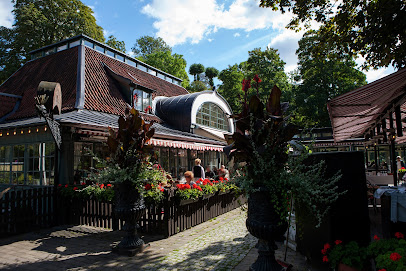
Djurgårdsbron
Experience authentic Swedish cuisine at Djurgårdsbron - where tradition meets modern dining in stunning surroundings.
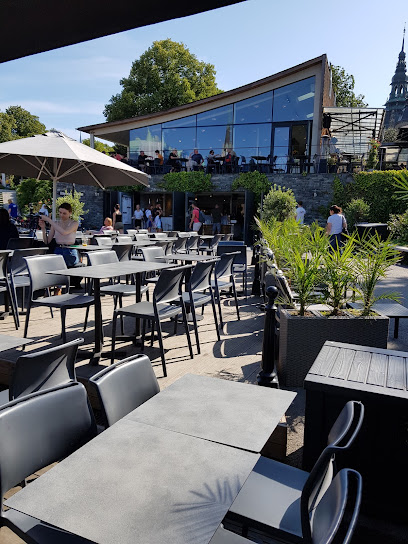
Villa Godthem
Discover the essence of Swedish cuisine at Villa Godthem - where tradition meets modernity in a breathtaking setting.
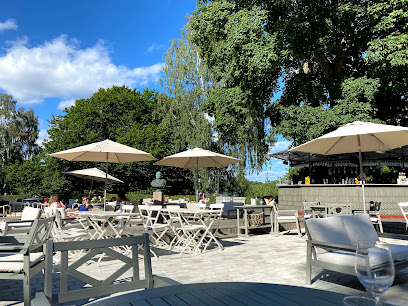
Restaurang Slipen
Discover modern Scandinavian cuisine at Restaurang Slipen in Stockholm, where tradition meets innovation amidst stunning waterfront views.
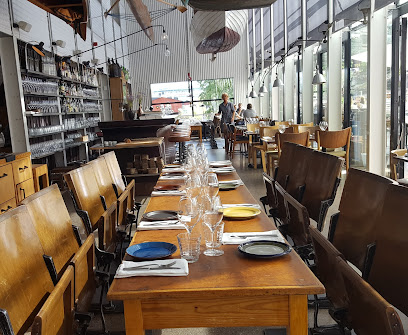
Allmänna Gränd
Experience the best of Swedish cuisine at Allmänna Gränd in Stockholm - where tradition meets modern dining.
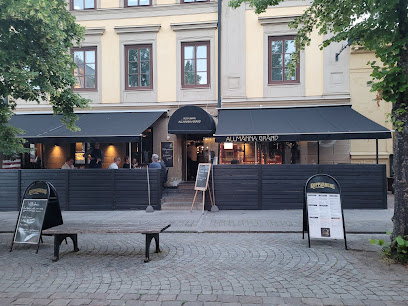
AIRA
Experience exquisite fine dining at AIRA in Stockholm – where innovative cuisine meets elegant ambiance for an unforgettable evening.
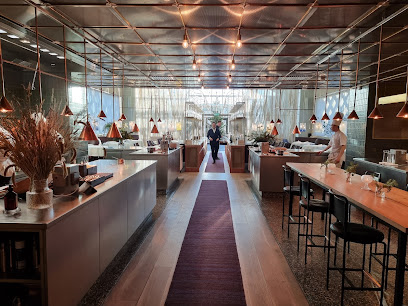
Restaurangen Nordiska Museet
Experience authentic Swedish cuisine within the historic ambiance of Restaurangen Nordiska Museet in Stockholm.
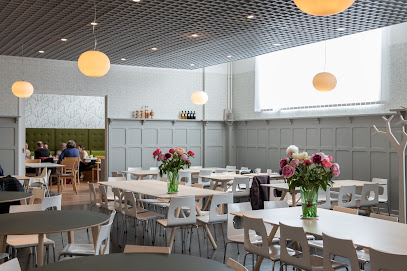
Restaurang Gubbhyllan
Experience authentic Swedish cuisine amidst stunning views at Restaurang Gubbhyllan in Stockholm's Skansen.
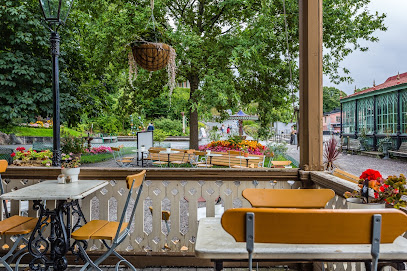
Spritmuseum Restaurant
Experience authentic Swedish cuisine at Spritmuseum Restaurant, where tradition meets modernity in an exquisite waterfront setting.
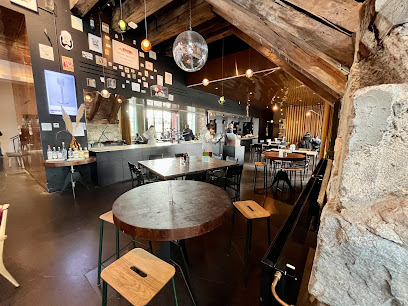
The Visitors Bistro
Experience authentic Swedish cuisine at The Visitors Bistro in Stockholm—where every dish tells a story.
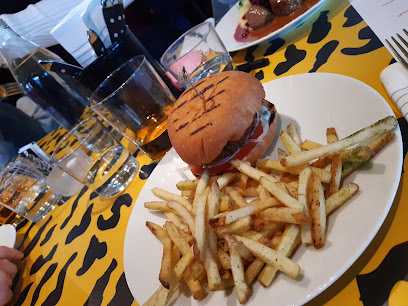
Markets, malls and hidden boutiques
Djurgårdsbutiken
Explore the essence of Sweden at Djurgårdsbutiken, your premier destination for authentic souvenirs and unique gifts in Johanneshov.
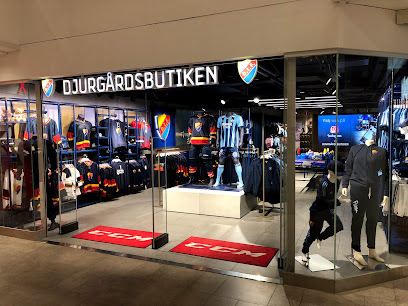
Skansenbutiken
Explore a world of unique Swedish souvenirs at Skansenbutiken, your gateway to the heart of Sweden's culture and craftsmanship.
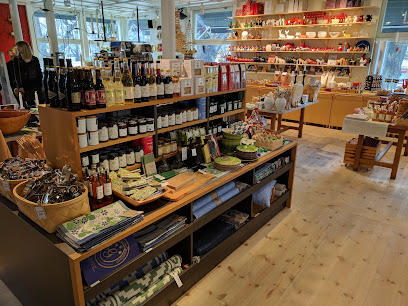
Indus The Gift Shop
Discover unique souvenirs, children's clothing, and festive gifts at Indus The Gift Shop, a charming destination in the heart of Stockholm.
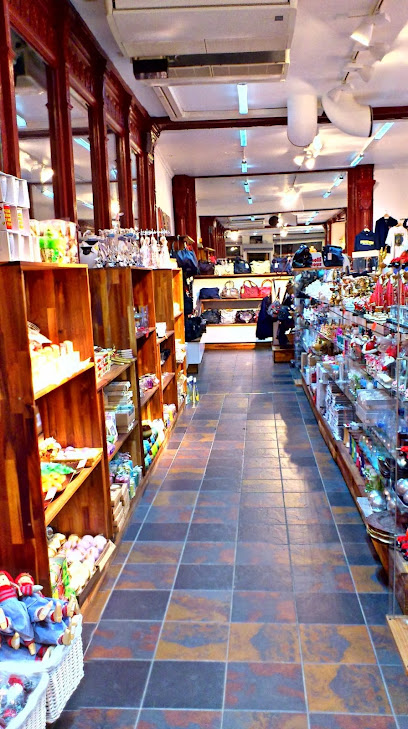
Museum Shop, Nordiska Museet
Discover unique Swedish handicrafts and souvenirs at the Museum Shop in Nordiska Museet, a must-visit destination for every tourist in Stockholm.
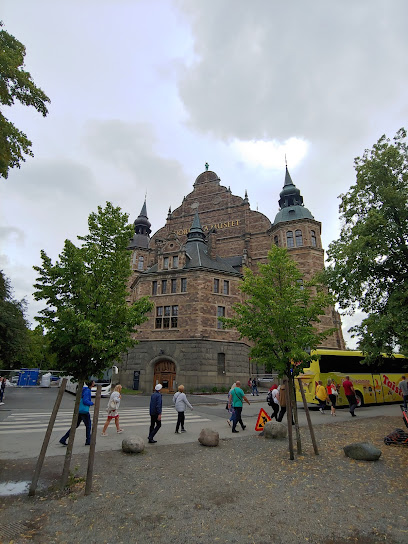
Logen på Bollnästorget
Explore the best of Swedish craftsmanship and culture at Logen på Bollnästorget, a charming store in Skansen, Stockholm, perfect for souvenir shopping.
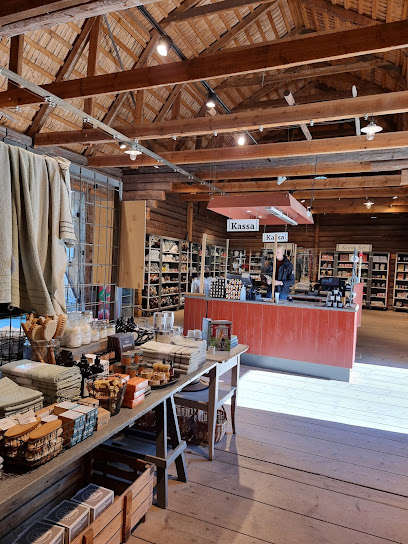
Old N Rare Antique Boutique
Explore the charm of Old N Rare Antique Boutique in Stockholm, where every vintage piece tells a unique story and history comes alive.
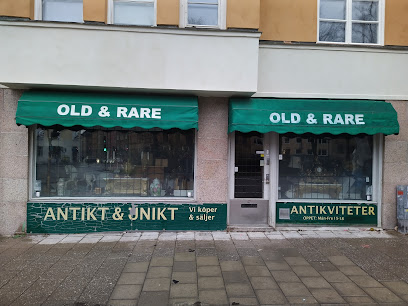
Made in stockholm
Explore Stockholm's artisanal hub at Made in Stockholm, home to unique handmade treasures crafted from natural materials.
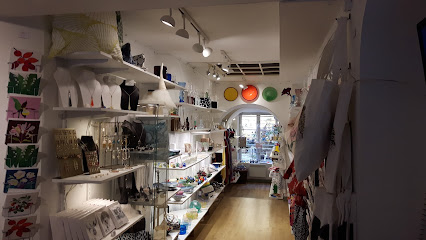
Järnhandeln
Discover the charm of Järnhandeln, a quaint hardware store in Djurgården, Stockholm, where local craftsmanship meets unique shopping experiences.
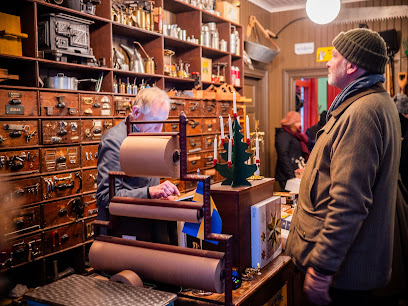
För
Explore För, a stylish clothing store in Stockholm offering contemporary Swedish fashion with unique local designs for every traveler.
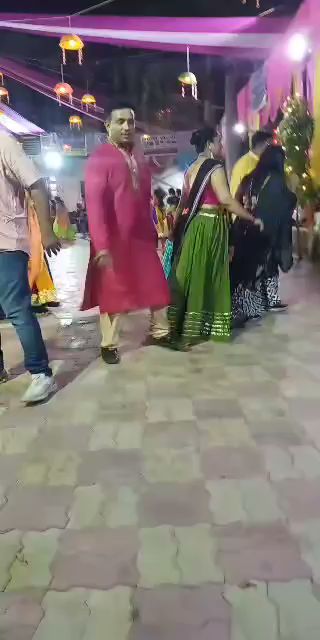
Arkivet
Explore Arkivet, Stockholm's charming second-hand store, where vintage treasures and sustainable shopping come together in a delightful experience.
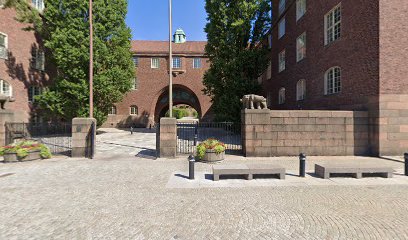
Essential bars & hidden hideouts
Wärdshuset Ulla Winbladh AB
Experience authentic Swedish cuisine in a charming setting at Wärdshuset Ulla Winbladh, complete with a beautiful beer garden and warm hospitality.
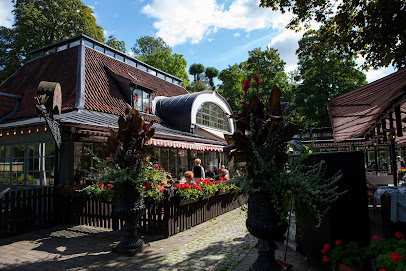
Villa Godthem
Experience the essence of Swedish cuisine at Villa Godthem, where tradition meets modernity in an exquisite dining atmosphere.
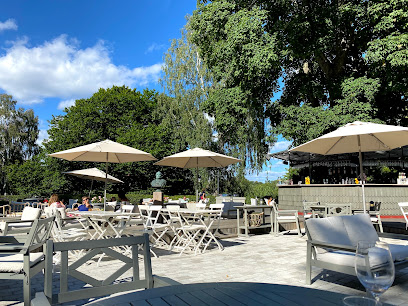
Josefina
Discover Josefina in Stockholm - a vibrant bar and restaurant offering exceptional cuisine, stunning views, and an unbeatable nightlife experience.
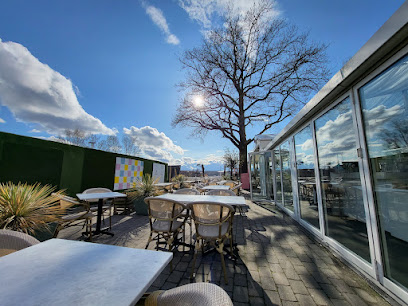
Lilla Hasselbacken Restaurant Café Wärdshus
Discover the essence of Swedish cuisine at Lilla Hasselbacken, where tradition meets the charm of Stockholm's scenic Djurgården.
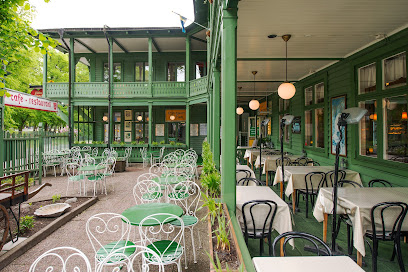
Prins Bertils boulehall
Discover the vibrant atmosphere of Prins Bertils Boulehall, where fun, food, and friendly competition come together in the heart of Stockholm.
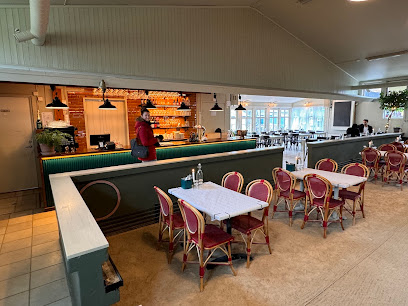
Restaurant Favelan
Discover the vibrant cocktail culture of Stockholm at Restaurant Favelan, where expertly crafted drinks meet a lively atmosphere.
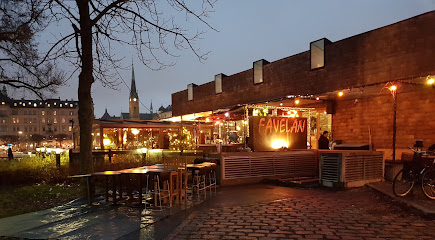
Pop Story
Discover the vibrant atmosphere of Pop Story, where delicious dining meets lively karaoke in the heart of Stockholm.
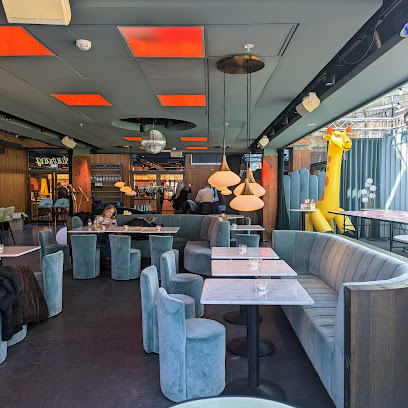
Herbarium mat & bar
Discover Herbarium Mat & Bar, a serene oasis in Stockholm where nature meets delightful culinary experiences in the heart of Rosendal Garden.
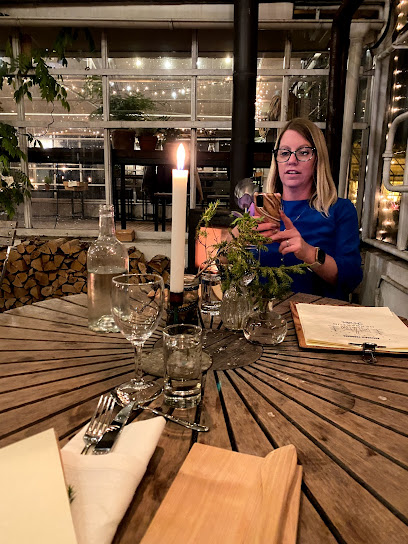
Paviljongbaren
Discover Paviljongbaren, a serene waterfront bar in Stockholm offering refreshing drinks and stunning views of the harbor.
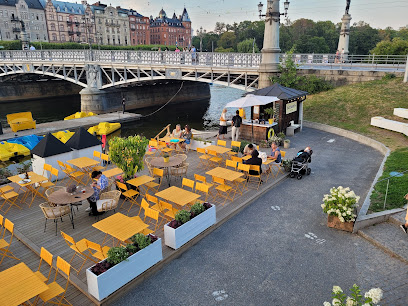
Spice Bar
Experience the vibrant nightlife at Spice Bar in Stockholm, where exotic cocktails and a lively atmosphere await every visitor.
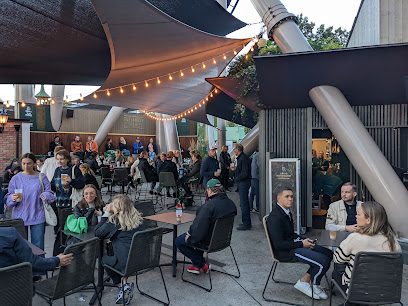
Local Phrases
-
- HelloHej
[hey] - GoodbyeHej då
[hey doh] - YesJa
[yah] - NoNej
[nay] - Please/You're welcomeSnälla
[snell-ah] - Thank youTack
[tahk] - Excuse me/SorryUrsäkta mig/Förlåt
[oor-sak-tah me/fur-lot] - How are you?Hur mår du?
[hoor mor doo] - Fine. And you?Bra. Och du?
[brah. oh-sh doo] - Do you speak English?Talar du engelska?
[tah-lahr doo eng-els-kah] - I don't understandJag förstår inte
[yahg fur-stor in-teh]
- HelloHej
-
- I'd like to see the menu, pleaseJag skulle vilja se menyn, tack
[yahg shoo-lah vil-yah seh men-in, tahk] - I don't eat meatJag äter inte kött
[yahg eh-ter in-teh shuh-t] - Cheers!Skål!
[skohl] - I would like to pay, pleaseJag skulle vilja betala, tack
[yahg shoo-lah vil-yah beh-tah-lah, tahk]
- I'd like to see the menu, pleaseJag skulle vilja se menyn, tack
-
- Help!Hjälp!
[yelp] - Go away!Gå bort!
[goh bohrt] - Call the Police!Ring polisen!
[ring poh-lee-sen] - Call a doctor!Ring en läkare!
[ring en leh-kah-reh] - I'm lostJag är vilse
[yahg air vil-suh] - I'm illJag är sjuk
[yahg air shyook]
- Help!Hjälp!
-
- I'd like to buy...Jag skulle vilja köpa...
[yahg shoo-lah vil-yah shoop-ah] - I'm just lookingJag tittar bara
[yahg tee-tar bah-rah] - How much is it?Hur mycket kostar det?
[hoor myk-et koh-star deht] - That's too expensiveDet är för dyrt
[deht air fur deert] - Can you lower the price?Kan du sänka priset?
[kahn doo sen-kah prees-et]
- I'd like to buy...Jag skulle vilja köpa...
-
- What time is it?Vad är klockan?
[vahd air klohk-ahn] - It's one o'clockKlockan är ett
[klohk-ahn air aht] - Half past (10)Halv tio
[hahlv tee-oh] - MorningMorgon
[mor-gohn] - AfternoonEftermiddag
[ef-ter-meed-dahg] - EveningKväll
[kvell] - YesterdayIgår
[ee-gohr] - TodayIdag
[ee-dahg] - TomorrowImorgon
[ee-mor-gohn] - 1En
[en] - 2Två
[tvoh] - 3Tre
[treh] - 4Fyra
[fy-rah] - 5Fem
[fem] - 6Sex
[sehx] - 7Sju
[shoo] - 8Åtta
[oht-tah] - 9Nio
[nee-oh] - 10Tio
[tee-oh]
- What time is it?Vad är klockan?
-
- Where's a/the...?Var finns en/den...?
[var fins en/dehn] - What's the address?Vad är adressen?
[vahd air ahd-rehs-sehn] - Can you show me (on the map)?Kan du visa mig (på kartan)?
[kahn doo vee-sah meeg (poh kahr-tahn)] - When's the next (bus)?När går nästa (buss)?
[nahr gohr neh-stah (boos)] - A ticket (to ....)En biljett (till ....)
[en bee-lyet (teel)]
- Where's a/the...?Var finns en/den...?
History of Djurgården
-
Djurgården's history began in the 16th century when it was designated as a royal hunting ground by King Johan III. The area was transformed into a lush park, utilized for hunting deer and other game, and became a retreat for the Swedish royal family. This early designation laid the foundation for its future development as a cultural and recreational hub.
-
In the 17th century, the construction of the Djurgården Canal began, connecting the island to the city. This project facilitated transportation and trade, allowing the royal family and the public easier access to Djurgården. The canal became a vital route for goods and services, contributing to the island’s growth as a popular destination.
-
The 19th century saw Djurgården evolve into a cultural epicenter. The establishment of numerous museums, such as the Nordic Museum in 1873 and the Vasa Museum in 1990, showcased Swedish history and art. This period also marked the opening of the Gröna Lund amusement park in 1883, further solidifying Djurgården’s status as a premier leisure destination.
-
Djurgården hosted the World Expo in 1897, which marked a significant moment in Stockholm's history. The event showcased Swedish innovation and culture, drawing international attention and visitors. The expo contributed to the island's development, leading to the construction of several buildings and attractions that remain popular today.
-
In recent decades, Djurgården has continued to thrive as a cultural and recreational area. The island has been carefully developed to preserve its natural beauty while accommodating modern attractions, such as the ABBA Museum and the Fotografiska contemporary photography museum. Djurgården remains a vital part of Stockholm's urban landscape, blending history with contemporary culture.
Djurgården Essentials
-
Djurgården is easily accessible from central Stockholm. You can take the metro (T-bana) to Kungsträdgården station, and from there, it's a short walk to the ferry terminal. Ferries operate frequently from Slussen and Nybroplan, providing a scenic route to Djurgården. Alternatively, buses 7, 44, and 69 also connect Djurgården with other parts of the city.
-
Djurgården is best explored on foot or by bicycle, as the area is relatively flat and offers many scenic paths. You can rent bicycles from various locations, including bike-sharing services. Public transport options include buses, which connect different parts of the island, but many of the attractions are within walking distance. The ferry service is a popular way to travel to and from Djurgården.
-
Djurgården is considered a safe area for tourists. However, it is always wise to remain vigilant, especially in crowded places like popular attractions or during events. While there are no significant crime hotspots targeting tourists in Djurgården, standard precautions should be taken, such as safeguarding your belongings and avoiding poorly lit areas at night.
-
In case of emergency, dial 112 for immediate assistance in Sweden. This number connects you to emergency services, including police, fire, and medical help. For non-urgent medical issues, visit the nearest pharmacy or healthcare center. It is recommended to have travel insurance that covers health emergencies. Local hospitals are equipped to handle most situations.
-
Fashion: Do dress comfortably, suitable for walking and outdoor activities. Don't wear overly casual attire if you plan to visit upscale restaurants. Religion: Do respect the local customs if visiting religious sites. Don't take photos where prohibited. Public Transport: Do validate your ticket before boarding. Don't eat or drink on public transport. Greetings: Do greet locals with a friendly 'Hej' (Hello). Don't forget to be polite and respectful. Eating & Drinking: Do try local dishes and enjoy outdoor dining in cafes. Don't waste food, as it is considered disrespectful.
-
To experience Djurgården like a local, consider visiting the smaller, less touristy attractions like the Rosendals Trädgård (Rosendal Garden) for a peaceful retreat. Join a guided walking tour to uncover hidden gems and local stories. For a unique experience, rent a kayak and paddle around the island. Don’t miss the opportunity to enjoy a picnic in one of the many parks, especially during the summer months, when the area is vibrant with locals.
Nearby Cities to Djurgården
-
Things To Do in Uppsala
-
Things To Do in Västerås
-
Things To Do in Norrköping
-
Things To Do in Örebro
-
Things To Do in Linköping
-
Things To Do in Visby
-
Things To Do in Karlstad
-
Things To Do in Turku
-
Things To Do in Kärdla
-
Things To Do in Kuressaare
-
Things To Do in Jönköping
-
Things To Do in Ventspils
-
Things To Do in Haapsalu
-
Things To Do in Kalmar
-
Things To Do in Kuldiga













